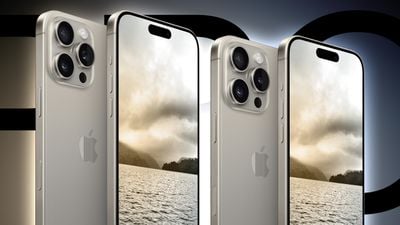 793
793
 2024-04-16
2024-04-16
Apple is testing a new anti-reflective optical coating technology for future iPhone cameras that could improve the quality of photos by reducing artifacts like lens flare and ghosting, claims a rumor out of Korea.

According to the news aggregator account "yeux1122" on the Naver blog, citing a company source within Apple's supply chain, Apple is looking at introducing new atomic layer deposition (ALD) equipment into the iPhone camera lens manufacturing process.
ALD involves depositing materials one atomic layer at a time onto a substrate, allowing for extremely precise control over thickness and composition. Its use allows manufacturers to apply very thin layers of materials onto semiconductor devices, including camera components.
In terms of camera lenses, ALD can be used to apply anti-reflective coatings, which can help to reduce photographic artifacts like streaks of light and halos that can occur in the final image when a bright light source such as the sun shines directly into the lens.
ALD can also reduce ghosting, a type of image distortion where faint, secondary images appear in the photo, typically opposite a bright light source. This happens when light reflects back and forth between the surfaces of the lens elements and the camera sensor.
In addition, ALD-applied materials can protect against environmental damage to the camera lens system without affecting the sensor's ability to capture light effectively.
The Naver blog claims that the manufacturing process will be applied to a "Pro model" in Apple's "next-generation" iPhone lineup, which sounds like a reference to one or both premium models in the iPhone 16 series, although given the timing of the rumor, the possibility that this method is being tested for next year's iPhone 17 Pro models should not be discounted.
Both upcoming iPhone 16 Pro models are expected to include a tetraprism lens with up to 5x optical zoom – a feature that is currently exclusive to the iPhone 15 Pro Max in Apple's smartphone lineup. Apple usually launches its new-generation iPhones around mid-September.
Source: Macrumors